Launch of the COLEACP Rapid SPS Assessment Tool (R-SAT) in Côte d’Ivoire
- 01/07/2021
- Posted by: Sandra Borma
- Category: Côte d'Ivoire, News
No Comments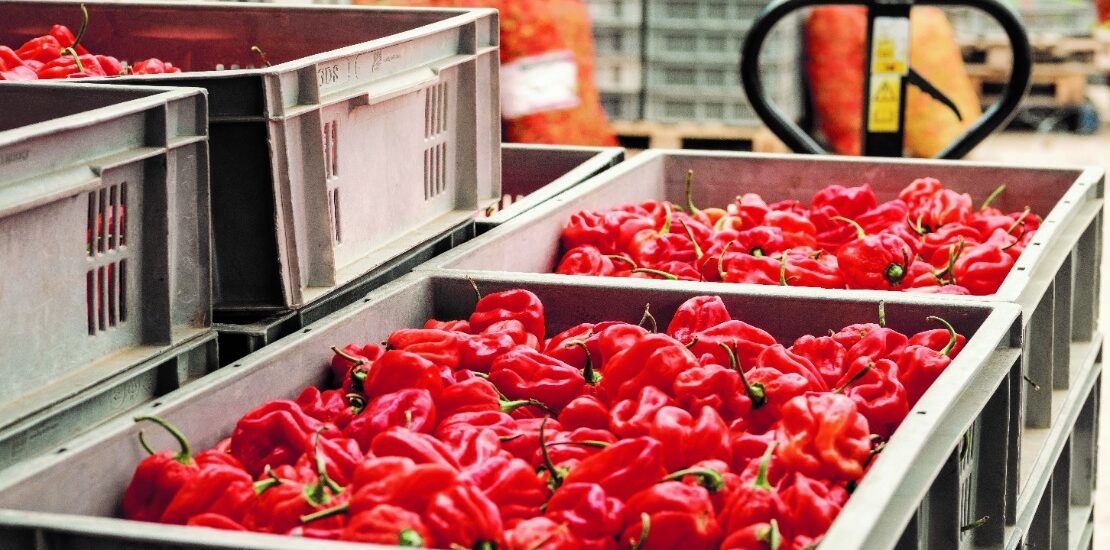 Côte d’Ivoire is one of the pilot countries chosen to test the new Rapid SPS Assessment Tool (R-SAT) developed by COLEACP. The main objective is to develop a priority action plan to strengthen national sanitary and phytosanitary (SPS) systems, and to ensure the alignment of these systems with international standards and regulations. During the launch meeting of this pilot in Abidjan, the competent authorities chose to apply the tool to the Capsicum sector, both for the local market and for… +
Côte d’Ivoire is one of the pilot countries chosen to test the new Rapid SPS Assessment Tool (R-SAT) developed by COLEACP. The main objective is to develop a priority action plan to strengthen national sanitary and phytosanitary (SPS) systems, and to ensure the alignment of these systems with international standards and regulations. During the launch meeting of this pilot in Abidjan, the competent authorities chose to apply the tool to the Capsicum sector, both for the local market and for… +Promoting dialogue between Togo’s DPV and horticultural exporters
- 14/06/2021
- Posted by: Sandra Borma
- Category: News, Togo
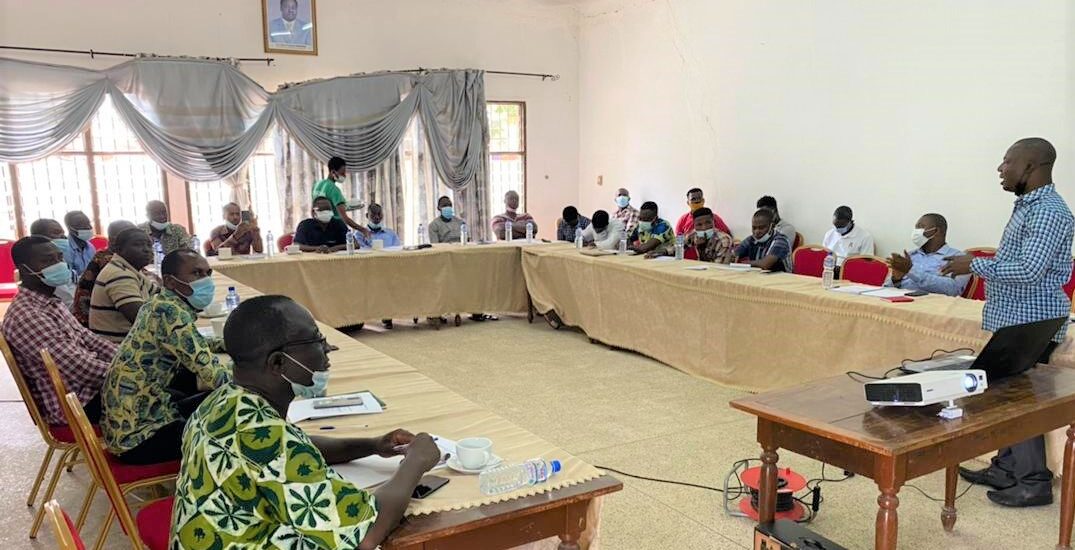 COLEACP supported the organisation of a meeting between the Plant Protection Directorate (DPV) of Togo and fruit & vegetable exporting companies in Lomé from 1 to 2 June 2021. The meeting aimed to promote public-private dialogue and to improve communication dynamics and relations between the DPV and operators. Discussions focused on the interception of leafy vegetables exported from Togo to the EU and the urgent measures taken to solve the problem; the ongoing development of a Good Practice Guide for… +
COLEACP supported the organisation of a meeting between the Plant Protection Directorate (DPV) of Togo and fruit & vegetable exporting companies in Lomé from 1 to 2 June 2021. The meeting aimed to promote public-private dialogue and to improve communication dynamics and relations between the DPV and operators. Discussions focused on the interception of leafy vegetables exported from Togo to the EU and the urgent measures taken to solve the problem; the ongoing development of a Good Practice Guide for… +Training for NPPO inspectors: Organisation and implementation of official controls
- 21/04/2021
- Posted by: Gaetan Dermien
- Category: Africa, Caribbean, News, Pacific
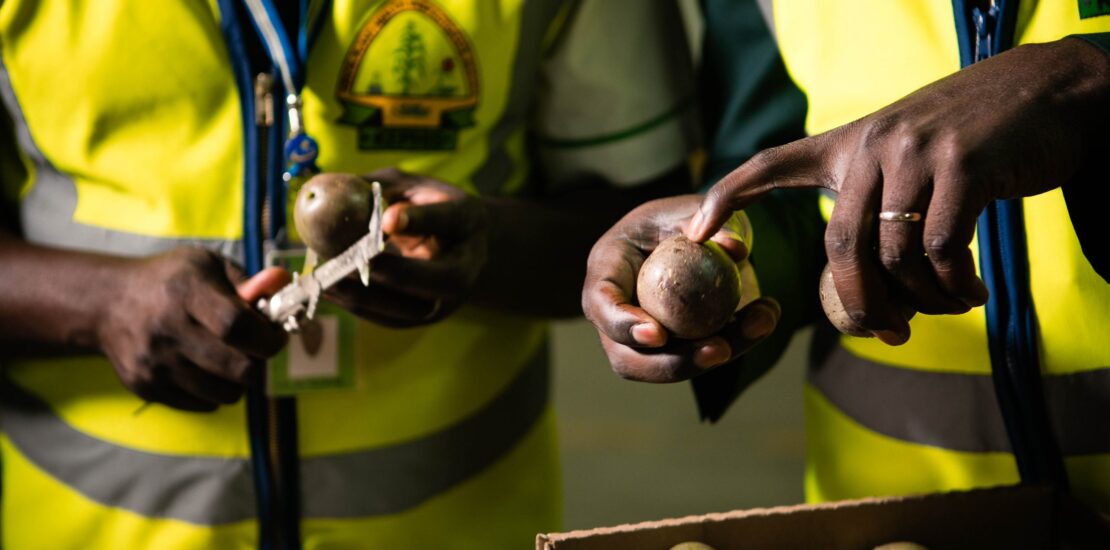 COLEACP’s online training for National Plant Protection Organisations (NPPOs) tackles both the organisation and the implementation (enforcement) of official sanitary and phytosanitary (SPS) controls. Organisation of official controls Participants in this series learn how to design and supervise the implementation of a system of official SPS controls adapted to the requirements of the International Plant Protection Convention (IPPC), and particularly relating to the new requirements of the EU plant health legislation that came into force in December 2019. In April… +
COLEACP’s online training for National Plant Protection Organisations (NPPOs) tackles both the organisation and the implementation (enforcement) of official sanitary and phytosanitary (SPS) controls. Organisation of official controls Participants in this series learn how to design and supervise the implementation of a system of official SPS controls adapted to the requirements of the International Plant Protection Convention (IPPC), and particularly relating to the new requirements of the EU plant health legislation that came into force in December 2019. In April… +Training in the new Rapid SPS Assessment Tool (R-SAT)
- 17/03/2021
- Posted by: Gaetan Dermien
- Category: Africa, Caribbean, News, Pacific
 Two online R-SAT training sessions took place in February and early March, each for nine experts – in English for participants from the Caribbean Agricultural Health and Food Safety Agency (CAHFSA), the Dominican Republic, Ghana, Kenya, Nigeria, Uganda and Zimbabwe; and in French for experts from Cameroon, Benin, Burkina Faso, Burundi, Côte d’Ivoire, Guinea, Madagascar, Senegal and Togo. Experts’ feedback will inform the final version of the tool, and the training will be followed by the use of R-SAT in… +
Two online R-SAT training sessions took place in February and early March, each for nine experts – in English for participants from the Caribbean Agricultural Health and Food Safety Agency (CAHFSA), the Dominican Republic, Ghana, Kenya, Nigeria, Uganda and Zimbabwe; and in French for experts from Cameroon, Benin, Burkina Faso, Burundi, Côte d’Ivoire, Guinea, Madagascar, Senegal and Togo. Experts’ feedback will inform the final version of the tool, and the training will be followed by the use of R-SAT in… +New COLEACP Rapid SPS Assessment Tool – promoting dialogue and engagement
- 09/02/2021
- Posted by: Gaetan Dermien
- Category: Africa, Caribbean, Pacific
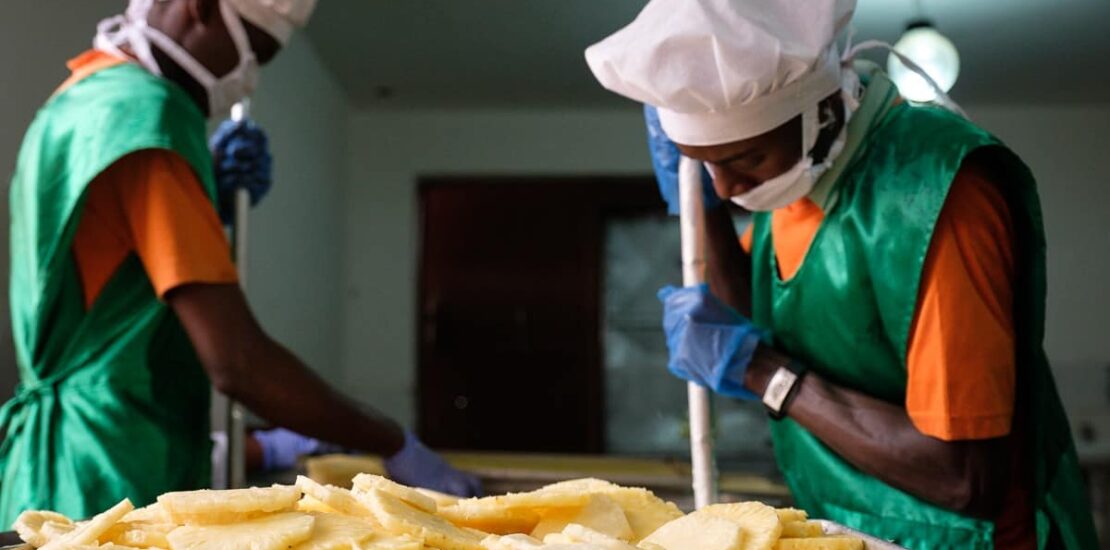 COLEACP’s new Rapid SPS Assessment Tool (R-SAT) provides an integrative change management model to help competent authorities in ACP countries assess their national sanitary and phytosanitary (SPS) systems. At the heart of the model is the facilitation of dialogue and engagement between the key stakeholders, both public and private. In the final stage of developing R-SAT, online training sessions are taking place with SPS experts: one in English in the second half of February, and one in French in the… +
COLEACP’s new Rapid SPS Assessment Tool (R-SAT) provides an integrative change management model to help competent authorities in ACP countries assess their national sanitary and phytosanitary (SPS) systems. At the heart of the model is the facilitation of dialogue and engagement between the key stakeholders, both public and private. In the final stage of developing R-SAT, online training sessions are taking place with SPS experts: one in English in the second half of February, and one in French in the… +Improving the SPS Quality of Penja pepper in Cameroon
- 28/01/2021
- Posted by: Sandra Borma
- Category: Cameroon, News
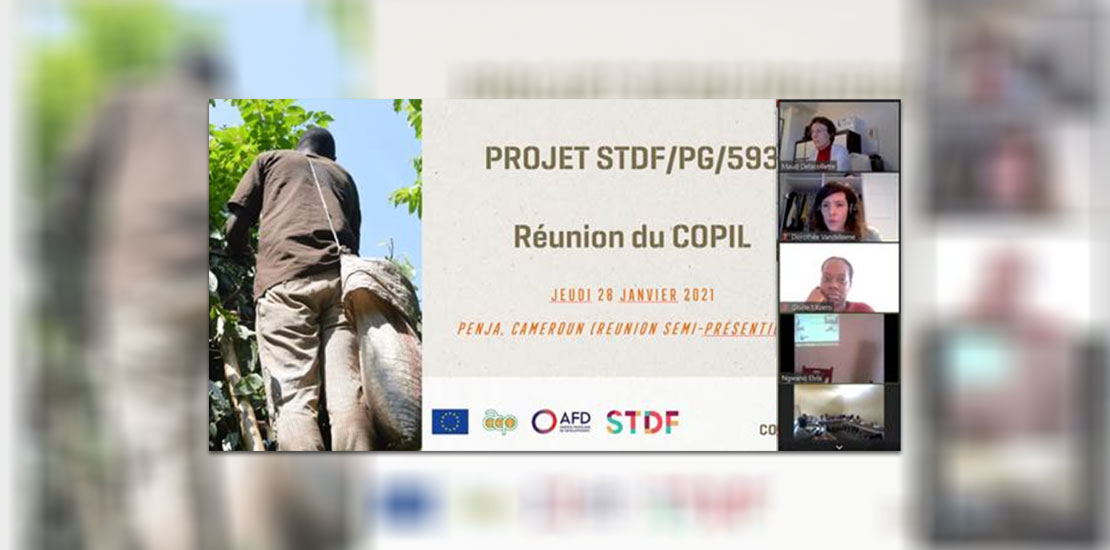 COLEACP’s STDF-funded project “Improving the sanitary and phytosanitary quality of Penja pepper in Cameroon to facilitate access to international markets” held its biannual steering committee meeting on 28 January at the headquarters of the Penja Pepper Geographical Indication Group (IGPP) and online. The project, which began in October 2019, is now entering its second year. The main activity in year 1 was the finalisation of a good practice guide for the pepper sector. In 2021, actors in the Penja pepper… +
COLEACP’s STDF-funded project “Improving the sanitary and phytosanitary quality of Penja pepper in Cameroon to facilitate access to international markets” held its biannual steering committee meeting on 28 January at the headquarters of the Penja Pepper Geographical Indication Group (IGPP) and online. The project, which began in October 2019, is now entering its second year. The main activity in year 1 was the finalisation of a good practice guide for the pepper sector. In 2021, actors in the Penja pepper… +1st session of the training of trainers and facilitators on good SPS practices for Penja pepper
- 21/12/2020
- Posted by: Sandra Borma
- Category: Cameroon, News
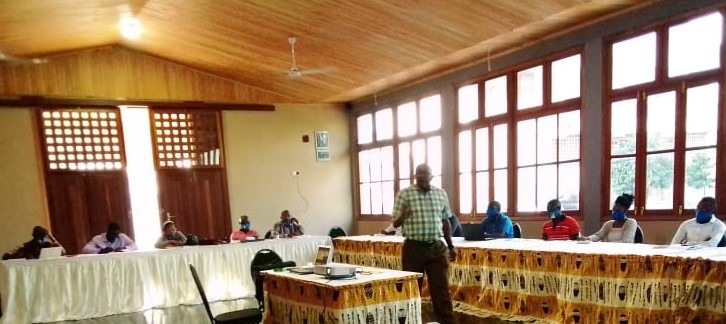 As part of the STDF/PG/593 project, a training session has started on Monday 21 December aimed at strengthening the technical and pedagogical skills of experts and strategic actors in the Penja pepper value chain.At the end of this training, the participants will be able to act as trainers and coaches, especially for the training courses planned in the framework of this project. The STDF Cameroon project, led by COLEACP, aim to improve the sanitary and phytosanitary quality of Penja pepper.… +
As part of the STDF/PG/593 project, a training session has started on Monday 21 December aimed at strengthening the technical and pedagogical skills of experts and strategic actors in the Penja pepper value chain.At the end of this training, the participants will be able to act as trainers and coaches, especially for the training courses planned in the framework of this project. The STDF Cameroon project, led by COLEACP, aim to improve the sanitary and phytosanitary quality of Penja pepper.… +Regional e-meetings on EU phytosanitary legislation, Brexit and more
- 16/12/2020
- Posted by: Emmanuel Bourcelet
- Category: Africa, Benin, Burkina Faso, Burundi, Cape Verde, Comoros, Côte d'Ivoire, Eswatini, Gambia, Ghana, Guinea, Guinea-Bissau, Kenya, Liberia, Madagascar, Malawi, Mali, Mauritius, Niger, Nigeria, Pacific, Rwanda, Senegal, Seychelles, Sierra Leone, Togo, Uganda, Zambia, Zimbabwe
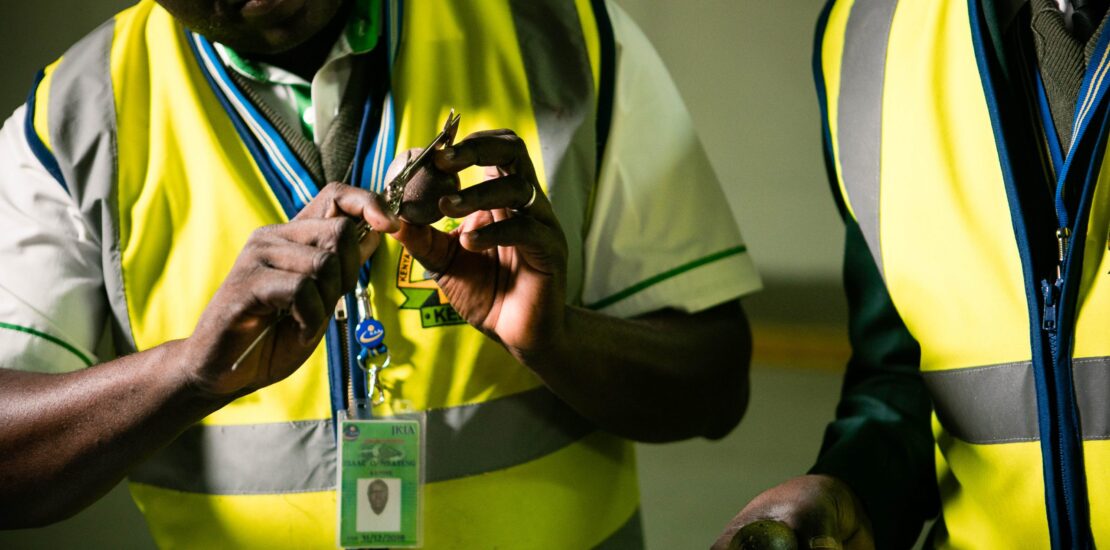 During December, COLEACP began a series of regional e-meetings for National Plant Protection Organisations (NPPOs). The first was held in collaboration with the Common Market for Eastern and Southern Africa (COMESA) on 4 December. It was followed by an e-meeting on 15 December for Economic Community of West African States (ECOWAS) countries. The third session, for Pacific NPPOs, will be on 17 December (in English). The series will continue in 2021, with key topics including (among others) lists of regulated… +
During December, COLEACP began a series of regional e-meetings for National Plant Protection Organisations (NPPOs). The first was held in collaboration with the Common Market for Eastern and Southern Africa (COMESA) on 4 December. It was followed by an e-meeting on 15 December for Economic Community of West African States (ECOWAS) countries. The third session, for Pacific NPPOs, will be on 17 December (in English). The series will continue in 2021, with key topics including (among others) lists of regulated… +COLEACP signs MoU with East African Community
- 11/12/2020
- Posted by: Emmanuel Bourcelet
- Category: Africa, Burundi, Kenya, News, Rwanda, Tanzania, Uganda
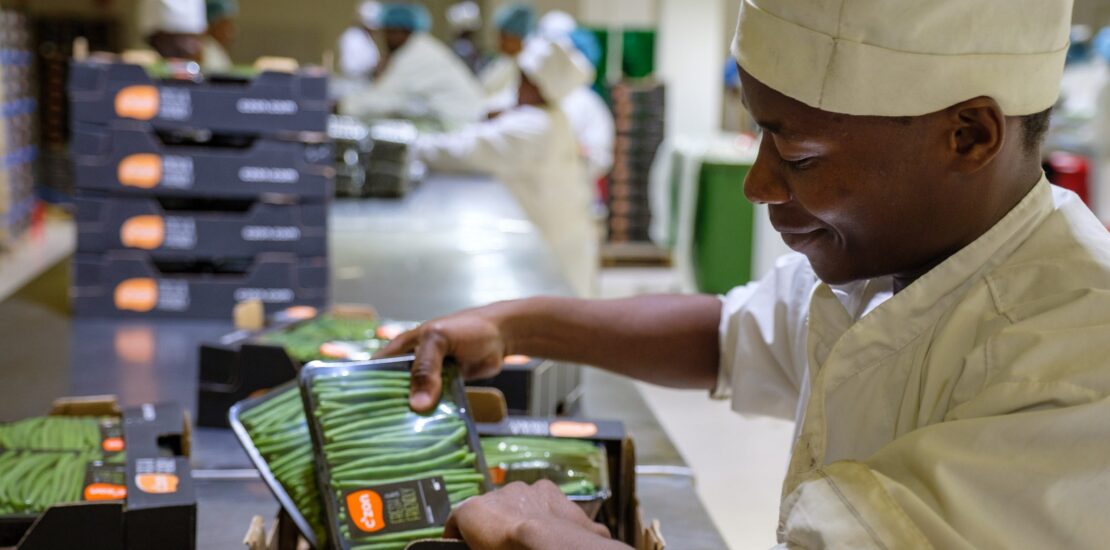 COLEACP has signed a Memorandum of Understanding with the East African Community (EAC) to support a competitive and sustainable horticultural sector in the East African Region. The agreement identifies synergies in four key areas of SPS systems: strengthening governance; improving operational processes; managing skills and competencies; and strengthening communication dynamics between relevant stakeholders, particularly to ensure communication between National Plant Protection Organisations (NPPOs) and professional organisations, especially focusing on active involvement of the private sector in the process of strengthening… +
COLEACP has signed a Memorandum of Understanding with the East African Community (EAC) to support a competitive and sustainable horticultural sector in the East African Region. The agreement identifies synergies in four key areas of SPS systems: strengthening governance; improving operational processes; managing skills and competencies; and strengthening communication dynamics between relevant stakeholders, particularly to ensure communication between National Plant Protection Organisations (NPPOs) and professional organisations, especially focusing on active involvement of the private sector in the process of strengthening… +COLEACP-CABI AGREEMENT TO SUPPORT GLOBAL FOOD SECURITY
- 10/12/2020
- Posted by: Gaetan Dermien
- Category: Uncategorized
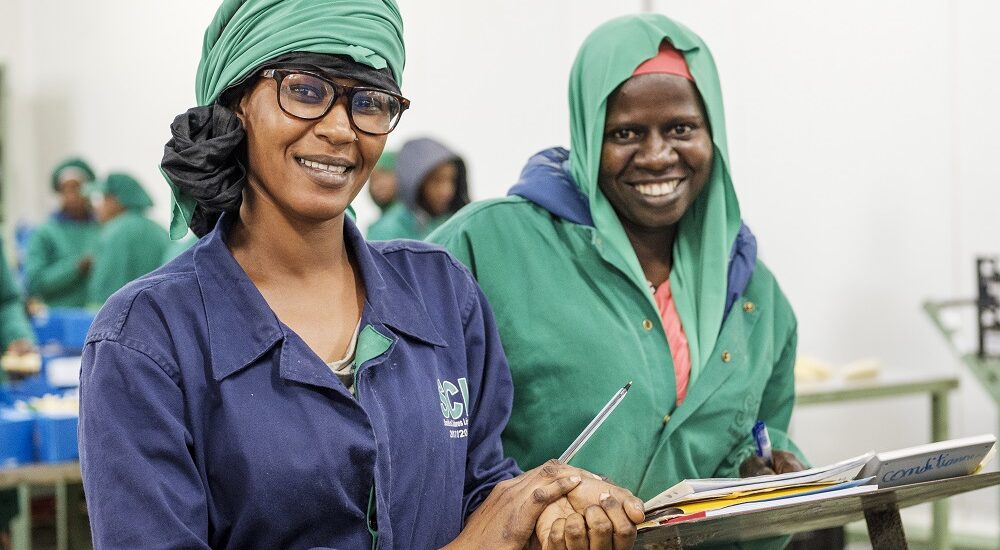 COLEACP and CABI have signed a Memorandum of Understanding to work together on key areas of interest concerning sanitary and phytosanitary (SPS) measures around the world. The agreement, which ultimately aims to benefit food security among countries within the African Caribbean and Pacific (ACP) states, will enable a strategic focus on improving SPS measures – including regulations and standards – at a local, national and regional levels. The understanding will build on CABI’s main objective of improving people’s lives worldwide… +
COLEACP and CABI have signed a Memorandum of Understanding to work together on key areas of interest concerning sanitary and phytosanitary (SPS) measures around the world. The agreement, which ultimately aims to benefit food security among countries within the African Caribbean and Pacific (ACP) states, will enable a strategic focus on improving SPS measures – including regulations and standards – at a local, national and regional levels. The understanding will build on CABI’s main objective of improving people’s lives worldwide… +
